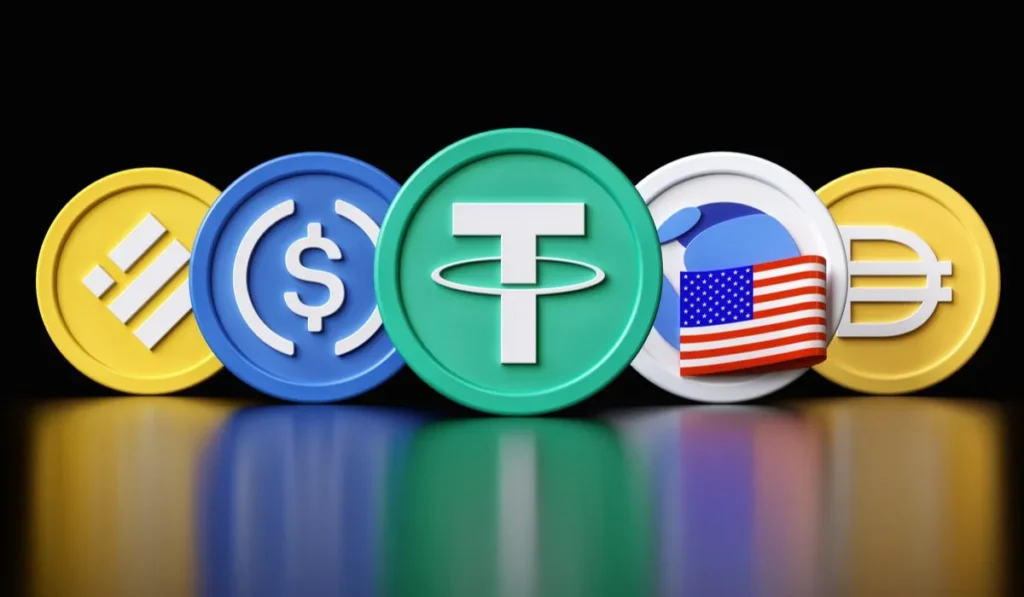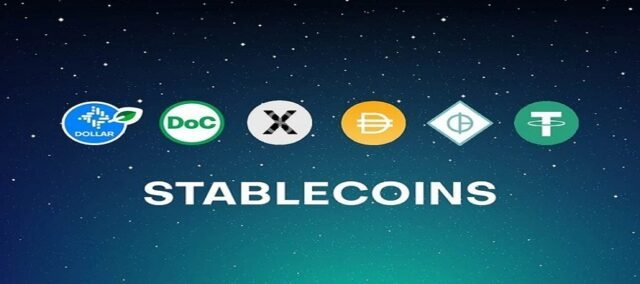In a remarkable projection earlier today, Zabira Technologies, a prominent digital assets exchange, has forecasted that stablecoins will become a core mechanism for business transactions in Nigeria within the next one to three years. This bold prediction was unveiled at Zabira’s brand relaunch press briefing in Lagos, where industry leaders took stock of emerging crypto-payment trends. As Nigeria continues to grapple with foreign exchange pressures, fast-moving entrepreneurs and businesses are turning toward stablecoins for a practical alternative.
Ike Ekemah, Head of Marketing & Communications at Zabira, emphasised the growing appeal of stablecoins, especially as businesses seek swift, cost-effective, and dependable solutions to cross-border payment delays and hefty charges associated with conventional banking systems. He noted that stablecoins stand out as a lifeline for both import-export operators and the rapidly expanding freelance and e-commerce sectors.

Table of Contents
Business Users Leading the Crypto Wave
Already, segments like e-commerce merchants, logistics providers, and freelancers are harnessing stablecoins to improve financial flows. For example, an international client unable to pay in naira can use a stablecoin, which platforms such as Zabira can convert instantly into local currency. This method sidesteps long bank processes and gives local businesses immediate liquidity—though mainstream Nigerian merchants are yet to broadly accept crypto directly.
Zabira expects that stablecoins, much like mobile money, will eventually integrate seamlessly into the grassroots economy. Where platforms such as USSD and mobile transfers once revolutionised payments, so too could crypto become a household norm—if infrastructural readiness and user trust continue to build steadily.

Nigeria’s Stablecoin Boom and Regulatory Momentum
To fully grasp the scale of this shift, a glance beyond Zabira shows that Nigeria isn’t just accelerating adoption—it’s already leading. Yellow Card, a top stablecoin infrastructure provider, reported that Nigeria processed nearly $22 billion in stablecoin transactions between July 2023 and June 2024, making it Africa’s largest stablecoin market. In addition, stablecoins now comprise 43% of all crypto transaction volumes in Sub-Saharan Africa—a clear sign of their growing prominence.
Experts attribute this uptake to persistent forex scarcity, naira volatility, and a pressing demand for fast, US-dollar-pegged payments across sectors such as oil and gas, manufacturing, and banking. Nigeria also shines with a remarkable 11.9% penetration rate, thanks to about 25.9 million users, positioning the country at the forefront of global stablecoin adoption.
Regulatory bodies have joined the market momentum. Through the Investments and Securities Act 2025 (ISA 2025), Nigeria now provides clearer legal definitions and oversight for crypto assets—including stablecoins. The Securities and Exchange Commission (SEC) has established sandbox programmes, onboarded stablecoin innovators, and is even exploring a naira-backed stablecoin to power domestic payments.
Emomotimi Agama, SEC Director-General, has framed Nigeria’s regulatory approach as one that “is not just finance, but nation-building,” putting in place frameworks tailored for Nigeria’s unique demographic and economic needs.
What’s Next for Nigerian Businesses and Beyond
For businesses across Nigeria, stablecoins are gradually becoming more than just speculative assets—they’re turning into everyday instruments anchoring trade, remittances, and operational funds.
According to Zabira’s forecast, companies, especially in import-export, will keep ramping up stablecoin usage to cut down waiting times, fees, and bureaucratic hassles. As Ekemah pointed out, “We’ll see a surge of businesses … invest heavily in stablecoins because it reduces turnaround times … human fees and whatnot.”
Freelancers and cross-border service providers can access earnings without major bank delays or FX loss. Similarly, businesses managing supply chains or global suppliers can streamline payments through tokenised, dollar-pegged instruments.
Regulators’ evolving stance appears to provide much-needed confidence to the market. The switch from crypto scepticism to a more engaged, frameworks-based approach signals a maturity not often seen in the region. By responsibly fostering innovation while managing risk, Nigeria is positioning itself as a leading hub for regulated crypto innovation in Africa.
The ripple effects may go beyond Nigeria’s borders. As other African nations wrestle with similar FX and inflation challenges, Nigeria’s example—where fintechs, regulators, and businesses align to drive adoption—could become a model for stablecoin-driven economies across the continent.

Conclusion: New Chapter for Nigerian Payments
Nigeria’s financial narrative is evolving rapidly. With stablecoin transactions nearing $22 billion in 12 months and millions already onboard, the path towards mainstream digital-asset payments is clear.
Zabira’s projection—stablecoins becoming a major driver of business transactions within three years—does not feel far-fetched. If current trends continue, what was once novel could soon be foundational. Businesses, regulators, and fintech ecosystem players are building the rails—soon, stablecoins may just be another part of Nigeria’s daily commerce toolkit.
Join Our Social Media Channels:
WhatsApp: NaijaEyes
Facebook: NaijaEyes
Twitter: NaijaEyes
Instagram: NaijaEyes
TikTok: NaijaEyes















![Trailblazing Chef Hilda Baci Set to Cook 250 Bags of Rice in Daring Attempt to Break Record for World’s Biggest Jollof Pot [VIDEO] Hilda Baci](https://naijaeyesblog.com/wp-content/uploads/2025/09/hilda-1-180x135.avif)
























